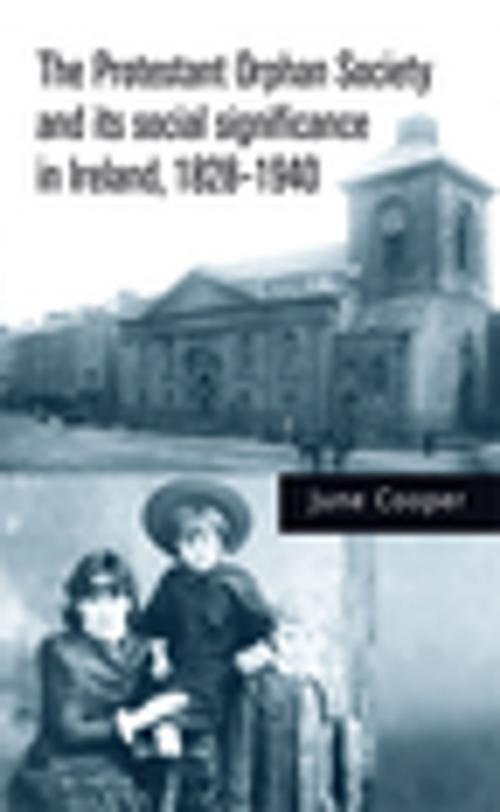The Protestant Orphan Society and its social significance in Ireland 1828–1940
Nonfiction, Social & Cultural Studies, Social Science, Philanthropy & Charity, Political Science| Author: | June Cooper | ISBN: | 9781847799869 |
| Publisher: | Manchester University Press | Publication: | February 1, 2015 |
| Imprint: | Manchester University Press | Language: | English |
| Author: | June Cooper |
| ISBN: | 9781847799869 |
| Publisher: | Manchester University Press |
| Publication: | February 1, 2015 |
| Imprint: | Manchester University Press |
| Language: | English |
The Protestant Orphan Society, founded in Dublin in 1828, managed a carefully-regulated boarding-out and apprenticeship scheme. This book examines its origins, its forward-thinking policies, and particularly its investment in children’s health, the part women played in the charity, opposition to its work and the development of local Protestant Orphan Societies. It argues that by the 1860s the parent body in Dublin had become one of the most well-respected nineteenth-century Protestant charities and an authority in the field of boarding out. The author uses individual case histories to explore the ways in which the charity shaped the orphans’ lives and assisted widows, including the sister of Sean O’Casey, the renowned playwright, and identifies the prominent figures who supported its work such as Douglas Hyde, the first President of Ireland.
This book makes valuable contributions to the history of child welfare, foster care, the family and the study of Irish Protestantism.
The Protestant Orphan Society, founded in Dublin in 1828, managed a carefully-regulated boarding-out and apprenticeship scheme. This book examines its origins, its forward-thinking policies, and particularly its investment in children’s health, the part women played in the charity, opposition to its work and the development of local Protestant Orphan Societies. It argues that by the 1860s the parent body in Dublin had become one of the most well-respected nineteenth-century Protestant charities and an authority in the field of boarding out. The author uses individual case histories to explore the ways in which the charity shaped the orphans’ lives and assisted widows, including the sister of Sean O’Casey, the renowned playwright, and identifies the prominent figures who supported its work such as Douglas Hyde, the first President of Ireland.
This book makes valuable contributions to the history of child welfare, foster care, the family and the study of Irish Protestantism.















